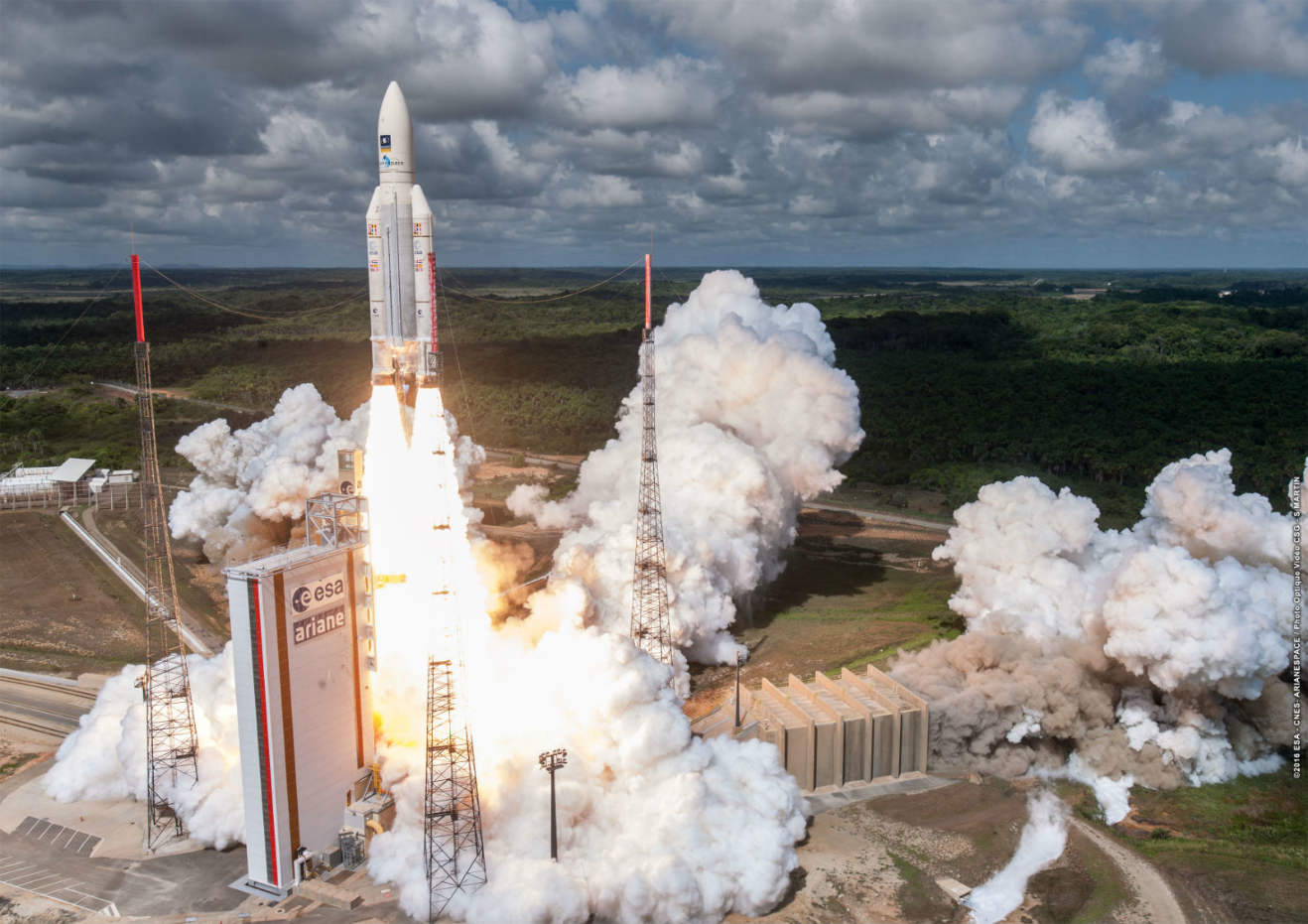Arianespace has successfully launched satellites 15, 16, 17 and 18 in the Galileo satellite navigation system. The Ariane 5 launch took place on 17th November at 13:06 GMT (10:06 local time) from the Guiana Space Centre in Kourou, French Guiana. The first pair was released 3 hours 35 minutes and 44 seconds after liftoff, while the second separated 20 minutes later.
The launch was the eighth from the Guiana Space Centre for Galileo and the first using an Ariane 5 launcher (ES version). Arianespace has now orbited 18 Galileo satellites, more than two-thirds of those that will eventually be deployed by the constellation, enabling Europe’s satellite navigation system to start services as early as the end of this year.
The previous 14 Galileo satellites were launched two at a time using the Soyuz–Fregat rocket.
Galileo is Europe’s civil global satellite navigation system. It will allow users worldwide to know their exact position in time and space with great precision and reliability. Once complete, the system will consist of 24 operational satellites and the ground infrastructure for the provision of positioning, navigation and timing services.
The Galileo programme is funded and owned by the EU. The European Commission has the overall responsibility for the programme, managing and overseeing the implementation of all programme activities.
Galileo’s deployment, the design and development of the new generation of systems and the technical development of infrastructure are entrusted to ESA. The definition, development and in-orbit validation phases were carried out by ESA, and co-funded by ESA and the European Commission.
The launch was the ninth of the year for Arianespace and the sixth with Ariane 5, marking the 75th successful launch in a row for this heavy-lift launcher and surpassing the previous record set by Ariane 4.
Arianespace will deploy the next eight satellites in the constellation, now under construction by OHB in Bremen, Germany, with two more Ariane 5 launches in the second half of 2017 and in early 2018.
Following successful Soyuz launches in 2016 for the Copernicus program (VS14) and Galileo (VS15), today’s launch was the third of the year by Arianespace for the European Commission and ESA.
With nine more satellite launches in the order book managed within the scope of contracts conducted by ESA (one Sentinel-2B mission and two Galileo missions), the European Commission retains its position as Arianespace’s leading government customer.

